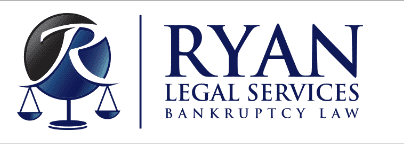In most cases, a debt runs through a few general levels of collection. The first phase of collection usually involves the creditor making a direct effort to collect the debt. Phone calls, written correspondence, additional interest and penalties added to the bill are the most common means of pressure applied directly by a creditor. A creditor can take reasonable steps to contact you by phone or in writing without having to comply with the Fair Debt Collection Practices Act.
Once a creditor has made a direct effort to collect on an account for what is usually 90 to 120 days, the account will be referred to a third party collection firm. A collection firm is usually not a group of attorneys, but rather a company that focuses on pressuring you, the debtor, by legal means into paying the debt. This can involve frequent telephone calls and written correspondence. The collection company, since it is not the original creditor must comply with the Fair Debt Collection Practices Act, or FDCPA Under the FDCPA, you can tell the collection company that you would like written verification of the debt, by mailing in or calling in a dispute to the claim. You have a legal right to dispute the debt at this stage of the collection process for any reason. While the debt is in dispute status, the collection firm cannot continue to contact you. This includes a law firm or an attorney, who is also classified under FDCPA as a third party collector subject to the terms of the FDCPA. If you inform the collection firm that you are represented by an attorney, the collector must direct all future correspondence to the attorney who represents you. You can also inform the collector that they may not contact you. Violations of the FDCPA can result in a $1,000.00 liquidated damages award for each violation, plus attorney fees.
When a creditor is not able to pressure the debtor to pay on an account, this usually results in the account being sent to a collection attorney or law firm. Sometimes, the debt is sold off by the creditor to investors who purchase the right to collect the debt ( plus all contractual interest on the account per the original contract). Sometimes large collection law firms purchase these debts and move forward on collection. The last stage of collection is legal action. Legal action involves the collection law firm filing a complaint. If the claim does not qualify as a small claims complaint ( generally a claim under $3,000.00), the creditor must be represented by an attorney to sue the debtor.
When defending a creditor lawsuit in Alabama, the debtor or his or her attorney should first make sure that the creditor has properly served the debtor. Certified U.S. Mail service is not personal service if the debtor does not personally sign for the Certified Mail. Personal service by the local county Sheriff's office or a licensed process server will be effective service if they file a sworn statement indicating that the debtor did in fact receive service of the Complaint. Next, the debtor should examine the complaint to make sure it includes a copy of the agreement upon which the debt is based upon. In Alabama, there are statutes of limitation that prevent old or stale debts from being enforceable. The statute of limitations can be as short as six (6) years for debts such as a credit card agreement and as long as twenty (20) years on a contract, as long as the debt was reduced to a judgment and renewed within certain time limitations.
The Debtor should check all signatures on the contract. In cases where a debt has been sold to a third party debt buyer firm, it is often the case that the transfer declaration form does not properly reference the contract upon which the lawsuit has been based, The Debtor should always file a request for production of documents and request a copy of all documents in the possession of the creditor related to the account, and all documents to be presented at the trial of the case. Without proof of the debtor's liability, usually the debtor's valid signature, the debt cannot be enforced under basic contract law. The debt may be enforceable where the creditor can produce records such as cancelled checks from the debtor as payment on the account, or phone records, computer records or bank records showing electronic payments on the account. The creditor will also present regular billing statements to show an ongoing history on the account, all under a theory of law called "quantum meruit" or "unjust enrichment. A creditor will be unable to establish in most cases where there is no signed agreement the interest rate which should be applied to the principle amount due, and therefore the debtor is usually justified in starting settlement negotiations at a figure which does not include the interest which cannot be proven with a written, signed agreement.
In most cases of an unsecured claim, the debtor can file for protection under the U.S. Bankruptcy Code to obtain a discharge of the debt. It is important to consult with an attorney who is experienced in bankruptcy matters to determine the best option in your particular case.

